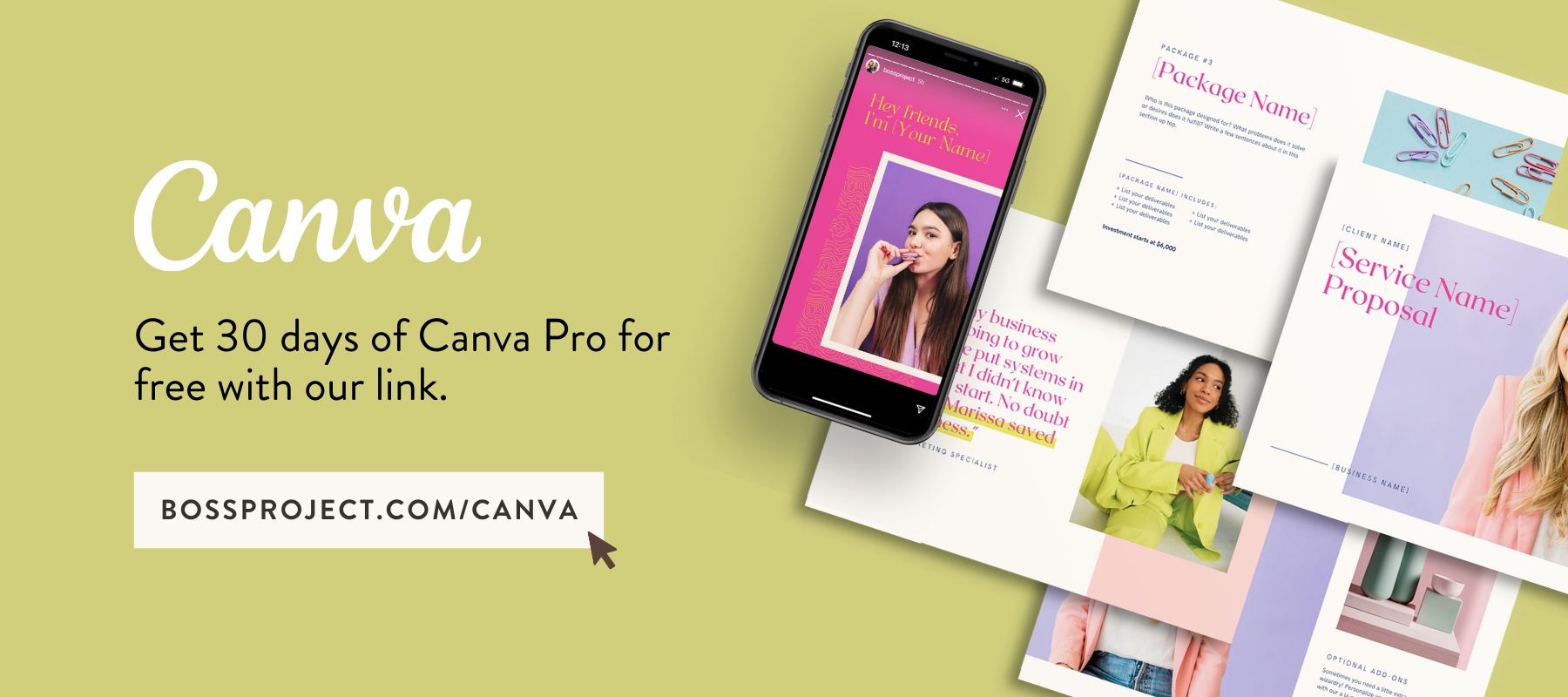When to Use Your Smallness to Your Advantage and When to Act like a Big Business
Ever feel like you need to hide that your business is small?
Early on in my handbag business when I had no one working for me, I would use phrases like, "Thank you for calling us. A customer service representative will contact you within one business day."
I used my first and middle names as my business name to give the company a big "designer" image. And I'd do everything I could to hide that I was 18 years old for fear that I wouldn't be taken seriously.
A couple of years in, I had a big realization.
I started to notice how customers were thrilled to learn that they were speaking to the business owner on the phone and excited to meet me at shows. While I viewed not yet being able to hire help as an embarrassment, my followers viewed all that I was doing by myself as impressive and my young start as inspiring. In my effort to look "big", I was losing out on the many advantages of being small.
Below, I've created a list of when to use your smallness to your advantage. I've also detailed when to act like a big business. It doesn't hurt to get the best of both worlds.
When to Own Your Smallness
1. The Personal Touch
This is the greatest superpower of a small business. It's one of the biggest advantages you have over your "big business" competition. Big businesses work hard to emulate the personal touch that a small business can provide.
As much as a company may train its customer service reps, no one is going to care about a customer like the owner of the business does (and customers know this). The owner has the authority to step over policies to make exceptions and knows the value of the customer like no other.
You can file complaints with your cable company, but you know that your email or call is never going to be heard by the CEO. You can make suggestions to the manufacturer of your vehicle for a better driving experience, but that feedback is not going to be seen by the CEO. You can write a review on a website about the fit of a dress you purchased, but it's unlikely that the CEO is going to read it.
If you email a small business, you can bet the owner is going to read your email, personally respond to you, and seriously take your feedback to heart.
Apply It: Let customers know that you personally answer every call, respond to every email, comment on every social media post and ship every order. They'll love knowing that the owner, designer and maker personally served them.
2. Go for the Niche
There's a lot of confusion with niches. Let's clear this up.
A niche is a small market segment. The product is designed to fill very specific needs. This includes hitting a particular price range, materials, quality and features.
Here's where the confusion happens.
As small business owners, we see big companies serve a big market — department stores with a bit of everything for everyone, Amazon getting into the grocery game and Gap Inc. with stores ranging from low to high end. We think that because the big companies have a range of products and target customers, we should too.
A small business should actually be doing the exact opposite.
By focusing on a small segment, finding better solutions for a problem and becoming known for being the very best at serving a need, we are able to compete and claim a place in the market. Besides, what small business owner has the time, money or resources to serve multiple markets? That will burn you out fast!
Apply It: Stay focused. You have a million ideas (you're an entrepreneur, it happens), but that doesn't mean you need to execute every idea right now. Pick your niche, do it really well, get known for it and then, in time (years), expand to the second niche.
3. Be Your Story
Whether a business is big or small, there's usually a pretty great story of how the business was started, its purpose, vision and heart. The story makes the business unique in a crowded marketplace, it establishes the personality of the brand and lays the foundation for how the business will be built. As businesses grow, employees are hired and product lines expand, it gets harder and harder to maintain the vision and the original culture of the business.
Own your story.
Share your story.
Attract a following with your story.
Don't stray from your story.
Apply It: Share your story in interviews and on social media. When tough decisions arise, ask yourself if the option you're considering aligns with the story that customers are attracted to. Your story is your strength, not your weakness.
Big Business Practices to Follow
1. Act Like a CEO
CEOs think big. They make decisions today that will make goals happen five years down the road.
They are proactive, not reactive.
They take big risks so they can win big.
They know their numbers — what it costs to operate, their profit margins, where they need to cut back and where to invest.
They know they need to invest money to make money.
CEOs know their strengths and allow others to fill in where they are weak. They work on the business, not in it.
Apply It: Identify yourself as the CEO of your business. Ask yourself, how would a CEO handle this situation? Would she take this risk? Would she play small or play big? Treat your business like the legit business that is, not a side hustle, hobby or something insignificant.
2. Plan & Strategize
Big businesses plan and strategize. They set goals for the next quarter, the next year and the next five years. They don't wish and hope those goals are going to happen.
They create strategies that are going to deliver the results they want. They test, tweak and retest their strategies to make sure they're working. They plan out their marketing for an entire year and know what products are coming down the line. They are intentional, thoughtful and strategic with every move they make.
Apply It: Write down a small goal for each of the remaining months of the year, one larger goal for each of the remaining quarters and one huge goal to accomplish by the end of the year. Don't stop there. Write down the specific steps you're going to take to make each goal happen.
3. Know Your Target Customer
Big businesses know their target customers inside and out. They're constantly collecting data on us. And they aren't doing it just for fun.
They understand that the better they know us, the easier it will be to meet our needs and sell products to us that fill those needs.
They know that targeting people with specific needs with a specific solution is the most effective way to sell.
Apply It: Get to know your customers. Ask them what they need and then truly listen. Interact with them on social media. Follow your followers back. Get a glimpse at who your business is attracting (it may be a different group than you thought). Gain a better understanding of how you can serve your customers better.
ABOUT THE AUTHOR
Jordana is a consultant and strategist for product-based business owners. At 18 years old she started a handbag business. For fourteen years she cultivated the company and created a brand that became recognized and respected in her industry. Today she uses this experience to help business owners build their brands and market their products.



